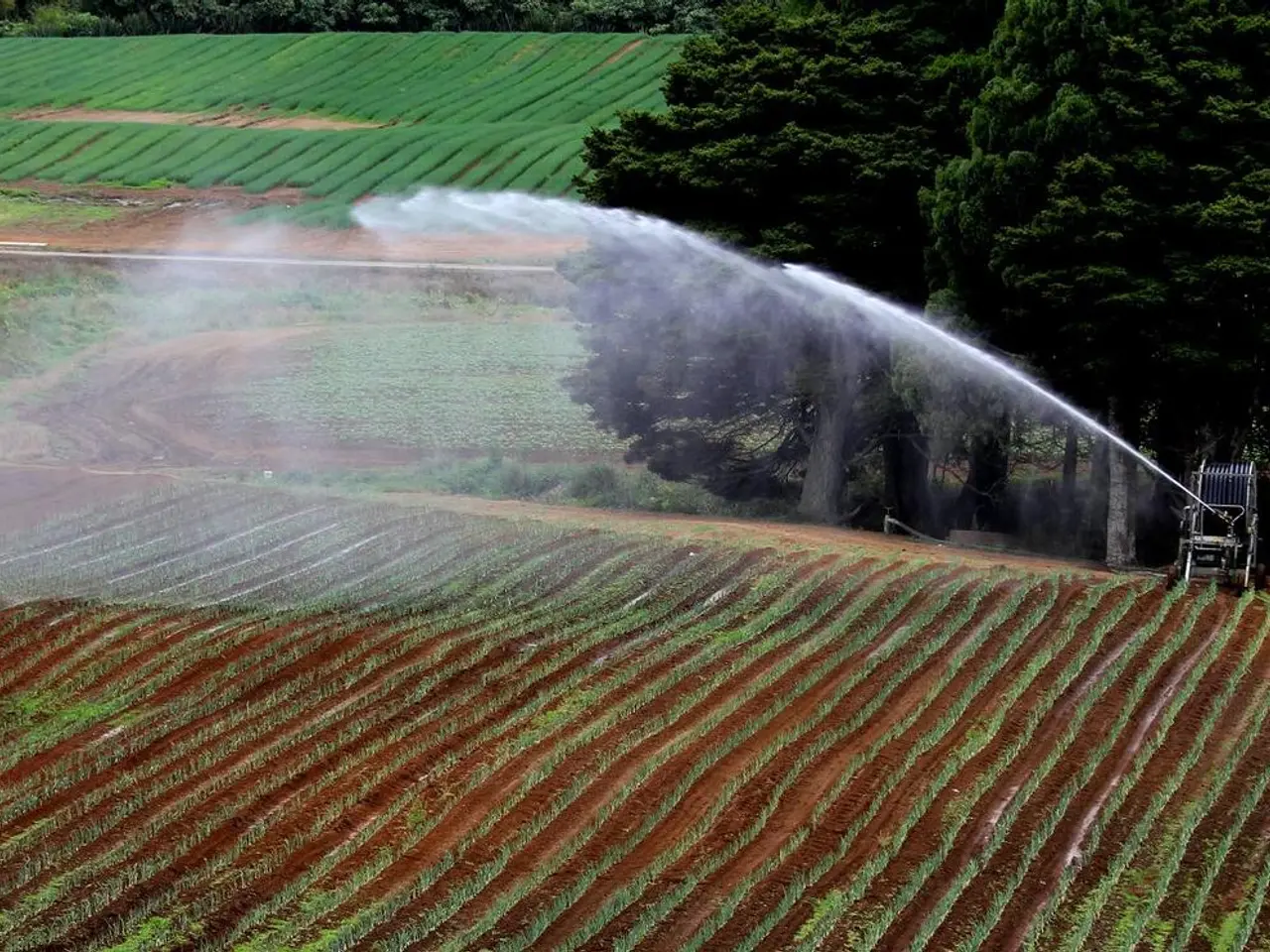Prime Minister Modi Kicks Off M.S. Swaminathan Centenary International Conference, Introduces International Award for Food and Peace
News Article: "PM Modi and the Evergreen Revolution: Advancing Sustainable Agriculture"
India's Prime Minister, Narendra Modi, recently inaugurated the M.S. Swaminathan Centenary International Conference at ICAR PUSA, New Delhi. This three-day event, themed "Evergreen Revolution: The Pathway to Biohappiness," is a tribute to the legendary agronomist and focuses on sustainable agriculture, biodiversity conservation, climate resilience, and inclusive rural development.
The conference aims to build on Swaminathan's vision by emphasizing conservation and sustainable use of biodiversity and natural resources, sustainable agriculture approaches that ensure food and nutrition security, strengthening climate resilience, utilizing appropriate technologies for equitable livelihoods, and engaging youth, women, and communities in rural development and decision-making processes.
During his address, PM Modi applauded the success of the "Viksit Krishi Sankalp Abhiyan" and called it a commendable example of taking technology from lab to land. He also highlighted flagship schemes like PM-Kisan, PM Fasal Bima Yojana, PM Krishi Sinchai Yojana, and PM Kisan Sampada Yojana.
The Prime Minister urged continuous expert guidance for agri-tech startups and advocated for the promotion of bio-fortified and nutrition-rich crops, reduction in chemical usage, and widespread adoption of natural farming. He stressed the expansion of solar-powered micro-irrigation, drip systems, and precision agriculture.
PM Modi also called for integrating AI, machine learning, and satellite data into a real-time agricultural decision-support system. He emphasized the need for climate-resilient agriculture, focusing on drought-tolerant, heat-resistant, and flood-adaptive crop varieties, crop rotation, and soil-specific crop planning.
India's agricultural sector has seen significant growth in recent years. The country achieved its highest-ever foodgrain production last year, with oilseeds like soybean, mustard, and groundnut also recording all-time highs. India currently ranks first in the production of milk, pulses, and jute, and second in rice, wheat, cotton, fruits, vegetables, and fish.
PM Modi also acknowledged Dr. M.S. Swaminathan's early advocacy for millets, bio-villages, and community seed banks, innovations that now shape India's agricultural landscape and global sustainability goals. He praised Swaminathan's humility and values, stating that they continue to inspire India.
The conference also marked the launch of the M.S. Swaminathan Award for Food and Peace. This award, launched by the M.S. Swaminathan Research Foundation (MSSRF) and The World Academy of Sciences (TWAS), honors individuals from developing countries who have made outstanding contributions to food security, climate justice, and equity in vulnerable communities. The first recipient of this award is Professor Adenle from Nigeria.
Dr. M.S. Swaminathan's pioneering work ensured food security for India and laid the foundation for sustainable and inclusive farming practices. His deep interest in Gujarat's agricultural reforms included valuable suggestions for the Soil Health Card initiative.
In conclusion, the Evergreen Revolution: The Pathway to Biohappiness conference serves as a global platform to renew commitment to sustainable agricultural and rural development principles pioneered by Prof. Swaminathan, targeting long-term ecological balance and improved livelihoods. The conference also aims to uplift 100 districts where agriculture has lagged behind, through the new scheme, PM Dhan Dhanya Yojana.
- The conference's theme, "Evergreen Revolution: The Pathway to Biohappiness," embodies a vision for sustainable agriculture that extends to health-and-wellness, personal-growth, and lifestyle.
- PM Modi advocated for promoting bio-fortified and nutrition-rich crops, linking food-and-drink directly to personal-finance through initiatives like PM-Kisan.
- The Prime Minister underlined the importance of integrating technology, including AI, machine learning, and satellite data, into the agricultural sector, showcasing a connection between environmental-science, business, and technology.
- The launch of the M.S. Swaminathan Award for Food and Peace highlights the significance of education-and-self-development, personal-growth, and personal-finance in fostering food security and equity.
- PM Modi's emphasis on solar-powered micro-irrigation, drip systems, and precision agriculture aligns with the environmental-science and technological advancements in the field of data-and-cloud-computing and innovation.
- The conference's focus on climate resilience mirrors the need for sustainable business practices, career-development, and data-driven decision-making in the face of changing weather patterns.
- The PM's call for reducing chemical usage and adopting natural farming echoes the importance of caring for the environment and promoting fitness-and-exercise through organic produce.
- The conference aims to uplift districts with lagging agriculture through the PM Dhan Dhanya Yojana, demonstrating a link between economic growth and environmental sustainability.
- PM Modi's appreciation for Dr. M.S. Swaminathan's work in championing millets, bio-villages, and community seed banks highlights the relationship between science, nutrition, and business.
- The success of India's agricultural sector has been furthered by its active participation in weather monitoring and climate change mitigation efforts, underscoring the intimate connection between science, technology, and the environment.




